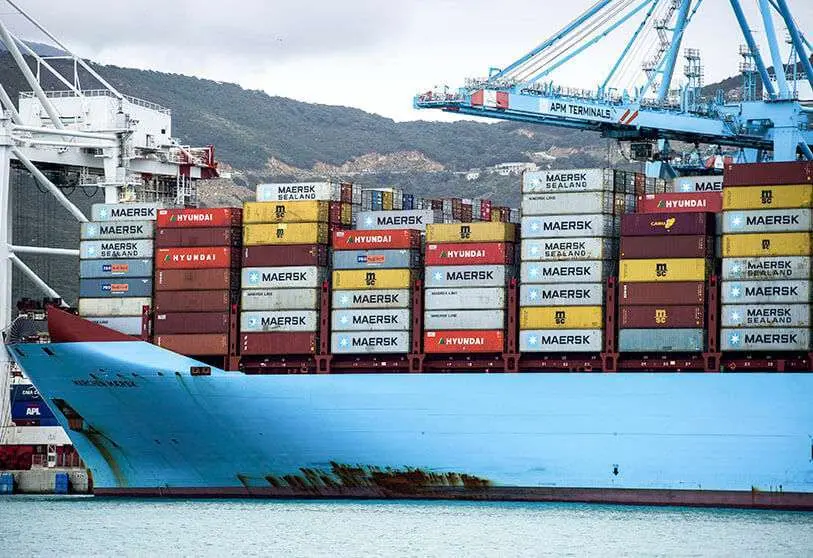Marruecos y las futuras consecuencias económicas del conflicto en Ucrania

The Alawi kingdom, like other nations, is economically linked to the two countries involved in one of the most important events of the 21st century on the European continent. Morocco imports wheat from Ukraine and exports citrus fruits to Russia, trade between the Kingdom and the two belligerent countries is set to decrease this year, according to the weekly magazine La Vie Éco. There is no doubt that the conflict will negatively affect most of the world's economies. Since the beginning of the Russian invasion, markets have been petrified and the price of commodities such as oil, gas and wheat have skyrocketed.
In relation to Ukraine, Morocco imported various materials such as wheat, maize and plastics last year at a cost of 2.7 billion dirhams. Meanwhile, in exports, it recorded 677 million dirhams in profits from the shipment of natural and chemical fertilisers, passenger cars and fish. On the other hand, the same goes for Russia, the North African country exported citrus fruits, fresh and dried fruits, sugar, among other products, earning a gross profit of Dh654 million. The country also imported a number of products, such as diesel and fuel oil, petrol and petroleum gas, and ammonia for almost 13 billion dirhams.

Of all these products, two are very representative of both imports and exports, said the Moroccan weekly: wheat imported from Ukraine for 1.1 billion dirhams, and citrus fruits exported to Russia for 323 million dirhams. According to the Policy Centre's report 'The Economic Implications of the War in Ukraine for Africa and Morocco', the Kingdom is the nation most likely to experience a significant negative shock from the war, as Ukraine and Russia are among Morocco's main wheat suppliers. In 2020, 21% of Morocco's wheat imports came from these two countries.
All this will have a negative effect on Moroccan international trade, however, the conflict will initially have no effect on the local market supply. According to the weekly, officials from the Ministry of Agriculture have stated that "Morocco has an official stock of five months, in addition to a reserve available from farmers".

The economic consequences are not focused on the level of partnerships between states, but on the level of prices, as La Vie Éco has pointed out, because the closure of ports in Ukraine, which account for 12% of world wheat exports, has pushed up the price of wheat, currently over $310 per tonne. The increase in the price level will be reflected in the Alawi kingdom's state budget, while at the same time affecting the widening of the budget deficit.
Despite this, Moroccan wheat imports do not depend solely on the European country, as around 20 % of imports come from the Black Sea, while the remaining 80 % are imported from other nations, including France. Beyond wheat, rising prices will intensify inflationary pressures, as is the case for gasoline and other fuels.

For its part, the International Monetary Fund (IMF) has already warned of the "devastating" economic consequences of the Russian-Ukrainian conflict. "While the situation remains very fluid and the outlook is subject to extraordinary uncertainty, the economic consequences are already very serious," IMF managing director Kristalina Georgieva said in a statement. The international institution has noted that energy and commodity prices, including wheat and other grains, have risen.

"Monetary authorities should carefully monitor the impact of higher international prices on domestic inflation in order to calibrate appropriate responses," the IMF recommended. It has also warned that "countries with very close economic ties to Ukraine and Russia are particularly exposed to the risk of shortages and supply disruptions and are the most affected by the growing influx of refugees".
However, it is still too early to say how much of an impact this will have on the Moroccan economy, as it will depend on the evolution of the conflict and the sanctions that will be imposed on Russia.









